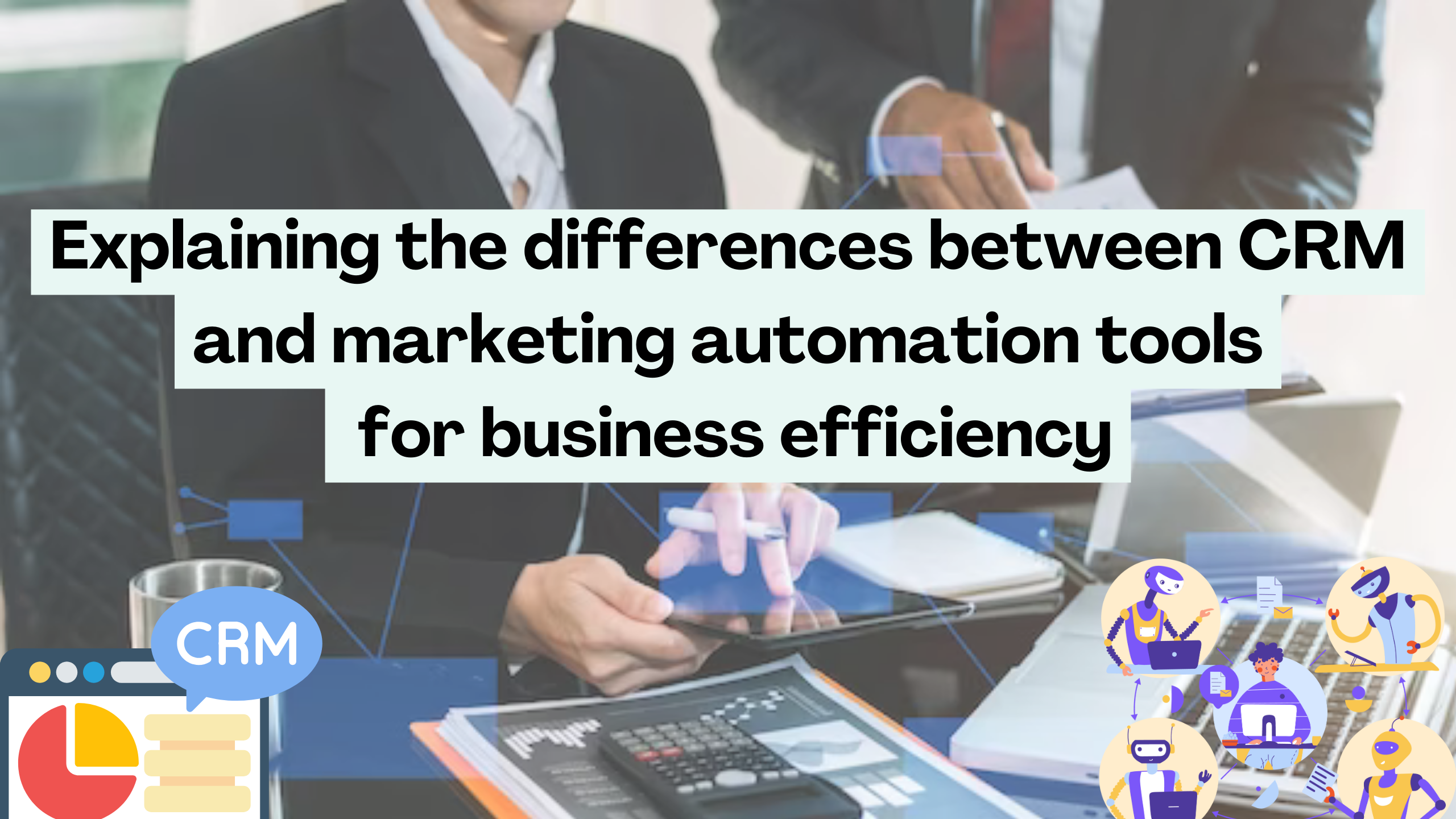Explaining the differences between CRM and marketing automation tools for business efficiency
- Proposal Software Customer Relationship Management


Explaining the Differences Between CRM and Marketing Automation Tools for Business Efficiency
In today’s fast-paced business environment, managing customer relationships and automating marketing processes are crucial for achieving efficiency and success. Two essential tools that play a significant role in this arena are Customer Relationship Management (CRM) and Marketing Automation tools. While they share similarities, they serve distinct purposes in optimizing business operations.
Understanding CRM and Marketing Automation
CRM (Customer Relationship Management)
CRM is a comprehensive solution designed to manage and nurture customer relationships. It focuses on organizing and centralizing customer information, interactions, and transactions. The primary goal of CRM is to enhance customer satisfaction, retention, and loyalty by providing a unified view of customer data across departments.
Some popular CRM tools include:
Marketing Automation
On the other hand, Marketing Automation tools streamline and automate marketing tasks, allowing businesses to generate, nurture, and qualify leads efficiently. These tools often include features like email marketing, lead scoring, and campaign management, enabling marketers to create personalized and targeted experiences for their audience.
Here are a few notable Marketing Automation tools:
Key Differences
- Focus and Functionality
- CRM: Concentrates on managing customer relationships and interactions.
- Marketing Automation: Centers around automating marketing processes to generate and nurture leads.
- Data Usage
- CRM: Utilizes historical and real-time customer data for personalized communication.
- Marketing Automation: Leverages data to automate marketing campaigns and processes.
- Departmental Usage
- CRM: Widely used by sales and customer service teams.
- Marketing Automation: Primarily employed by marketing teams.
- Customer Lifecycle
- CRM: Manages the entire customer lifecycle, from lead to customer and beyond.
- Marketing Automation: Focuses on the lead nurturing stage of the lifecycle.
- Integration:
- CRM: Often integrates with various business applications, creating a holistic view of customer data.
- Marketing Automation: Integrates with CRM systems to align marketing and sales efforts.
Conclusion
In conclusion, both CRM and Marketing Automation tools are invaluable assets for businesses looking to enhance efficiency and customer satisfaction. While CRM emphasizes managing customer relationships, Marketing Automation streamlines marketing efforts to attract and nurture leads.
For a comprehensive understanding and management of your SaaS stack, platforms like Subscribed.FYI come into play. It offers a centralized platform to compare, evaluate, and select the best SaaS tools based on your specific requirements. Additionally, Subscribed.FYI Deals provides exclusive member-only deals, unlocking substantial savings on a variety of SaaS tools, including Subscribed.FYI. Sign up for free today and take control of your subscription expenses effortlessly.








